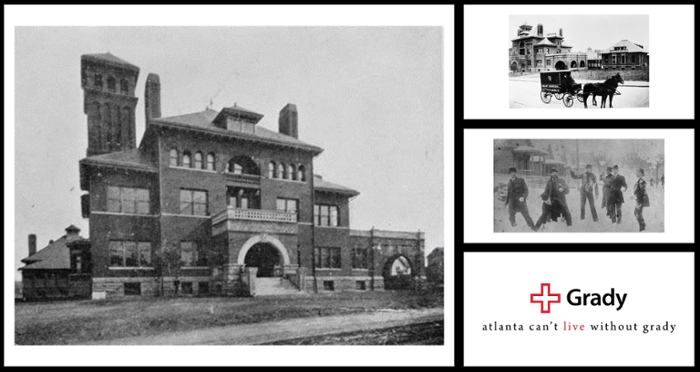Overview

The Emory Orthopaedic Trauma Fellowship at Grady Memorial Hospital is a 12-month fellowship at Georgia’s first and busiest ACS certified level I trauma center. This fellowship will offer a broad experience with pelvic/acetabular fractures, peri-articular fractures, management of poly-traumatized patients, and nonunion/malunion surgery. The Emory Ortho Trauma Faculty represent a wide range of trauma fellowship training themselves, which creates an ideal learning environment for fellows, with daily board rounds serving as a forum for diagnostic, management, and research-based discussion. The faculty training includes Parkland Hospital, Carolinas Med Ctr, Harborview, Shock Trauma, and Miami/Jackson Memorial. This wide range not only brings different ideas to the table in terms of patient care, research, and teaching style but also serves the eventual fellows in terms of professional contacts around the country.
Clinical Schedule
Grady Memorial Hospital, which is Georgia’s first and busiest ACS certified level 1 trauma center, has approximately 7,000 trauma activations with over 4,000 trauma admission per year. The Orthopaedic trauma service is one of the busiest services in the operating room and often works together with the General Surgery Trauma, Vascular, Plastics, Critical Care and Neuro-Surgical services. Grady serves as the level 1 trauma center for metropolitan Atlanta and the surrounding areas and serves as a referral center for complex traumatic injuries, including fracture nonunion and malunion.
The Orthopaedic trauma fellows will alternate on the “A” service and “B” service for 3-month blocks. They will work with the 6 trauma fellowship trained faculty, 2 Hand trained faculty, an arthroplasty surgeon who cares for acute trauma and post traumatic conditions, a sports trained faculty member who performs multi-ligamentous knee surgeries, and the 9 Emory Orthopaedic residents at any given time at Grady Hospital. The fellows will spend one day in the Grady Orthopaedic trauma clinic learning the intricacies of non-operative care of musculoskeletal injuries and will average 3.5 to 4 days in the OR per week. The fellows will enjoy a process of graduated autonomy in both the OR and clinic settings.
Education
The fellows will be involved in daily board rounds and will be able to participate in the daily teaching surrounding this resident/faculty activity. Similarly, the fellow will be encouraged to teach junior residents during surgical procedures and during the decision-making process regarding poly-traumatized patients and those undergoing non-operative treatment.
Weekly fellow led indication conference will provide an opportunity to teach residents and medical students on service through case presentations and discussion. Furthermore, there is a weekly trauma journal club on Tuesday mornings where a current or classic Ortho Trauma article is discussed.
The Grady Ortho Trauma Lecture series is a weekly Ortho Trauma specific/faculty led didactic schedule on Thursday mornings. This Grady Ortho Trauma didactic and the department wide resident subspecialty education schedule, which includes a trauma specific cadaver lab, also provide avenues to teach trauma related topics, and the fellows can participate as they desire.

Research
The fellow will be expected to complete at least one publishable project at the end of the fellowship. The fellow will have time set aside for academic pursuits throughout the year. There are many orthopaedic research personnel at Emory University assisting the faculty, fellows, and residents in their research projects. They also ensure that all projects meet IRB standards and are achievable in the timeframe of a clinical trainee. The current orthopaedic clinical research staff consists of 1 research coordinator and an additional research assistant dedicated to orthopaedic trauma. There are currently approximately 35 active clinical orthopaedic trauma IRBs, and we average 10-15 submissions per year to the annual meetings of the OTA and AAOS. Several recent trainee-led projects within the orthopaedic trauma division have been published in the Journal of Orthopaedic Trauma and Injury. The orthopaedic trauma division also has an affiliation with a biomechanics research laboratory, multiple basic science labs, Emory/Rollin’s School of Public Health and Georgia Institute of Technology School of Bioengineering for fellow engagement as their interests dictate.
Other
The fellowship participates in the SF match program.

